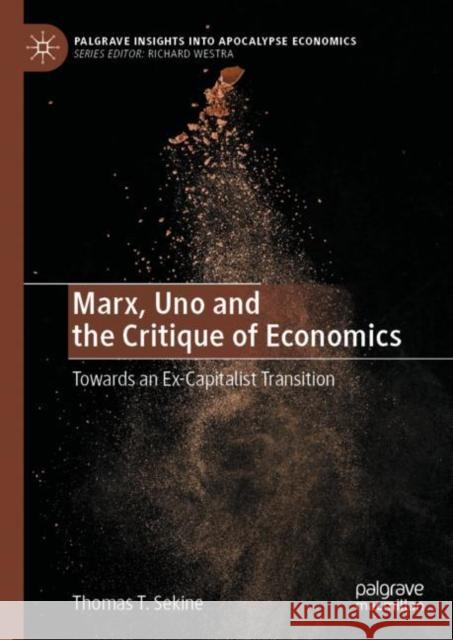Marx, Uno and the Critique of Economics: Towards an Ex-Capitalist Transition » książka
Marx, Uno and the Critique of Economics: Towards an Ex-Capitalist Transition
ISBN-13: 9783031226298 / Angielski / Twarda / 2023 / 155 str.
Marx, Uno and the Critique of Economics: Towards an Ex-Capitalist Transition
ISBN-13: 9783031226298 / Angielski / Twarda / 2023 / 155 str.
(netto: 461,12 VAT: 5%)
Najniższa cena z 30 dni: 462,63
ok. 22 dni roboczych.
Darmowa dostawa!
This unique book, written in a question and answer style, brings to life the work of the world’s foremost Marxian economist Thomas T. Sekine on the scientificity of Marx’s project inCapital, its applicability to navigating world-historic change across capitalist stages of development and what Marxian economics teaches us about building viable future historical societies. Sekine, a student and follower of Marxist Kozo Uno, argues that capitalism neither constitutes the end of history nor does its overthrow await socialist revolution. Rather, based upon its own historical delimitations capitalism, following World War I and the Great Depression of the 1930s, has entered a period of disintegration. Grounded on a scathing critique of bourgeois economics in all its forms, Sekine exposes the futility of bourgeois policy interventions attempting to revive capitalism. This book will be of interest to economists in both the mainstream and heterodox schools, and those broadly interested in the history of economic thought.
This unique book, written in a question and answer style, brings to life the work of the world’s foremost Marxian economist Thomas T. Sekine on the scientificity of Marx’s project in Capital, its applicability to navigating world-historic change across capitalist stages of development and what Marxian economics teaches us about building viable future historical societies. Sekine, a student and follower of Marxist Kozo Uno, argues that capitalism neither constitutes the end of history nor does its overthrow await socialist revolution. Rather, based upon its own historical delimitations capitalism, following World War I and the Great Depression of the 1930s, has entered a period of disintegration. Grounded on a scathing critique of bourgeois economics in all its forms, Sekine exposes the futility of bourgeois policy interventions attempting to revive capitalism. This book will be of interest to economists in both the mainstream and heterodox schools, and those broadly interested in the history of economic thought.











